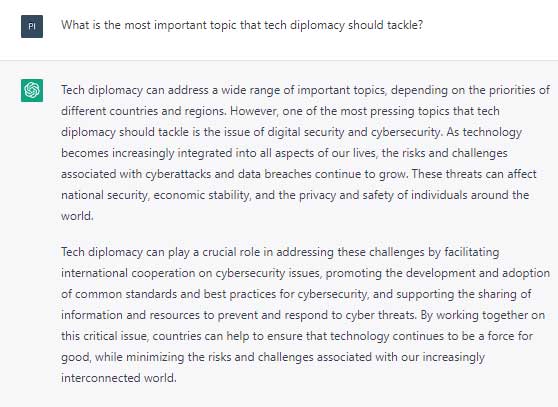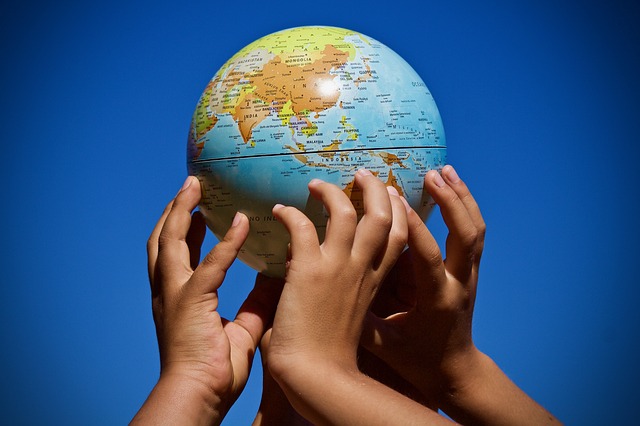Imagine how important technology is, in our everyday lives – for those fortunate enough to be connected to the Internet and enjoy some of its perks and benefits. According to Statista in 2023, the number of smartphone users in the world amounts to 6,92 billion. That is roundabout 86 percent of the current world population, of which 5,16 billion have access to the internet, participating somehow in the current internet experiment.
But how much time do we actually spend on these devices? If we believe Google (should we?) then the average time on devices ranges from 3 to 7 hours per day. The most familiar companies in that space include for example Samsung, Apple and Google. Let us zoom into Apple[1] and Samsung’s financial results briefly, in order to have a feeling for the magnitude of their financial power. Apple for example, a company that is said to have had a revenue of $394,3 billion (and growing!), with about more than 1.5 billion active iPhone users worldwide in 2023. Or Samsung[2], headquartered in South Korea, the company posted $245.7 billion in consolidated revenue, also reporting more than 1 billion people using their devices.
It is fair to say that they are the true power houses in Internet land, providing not only the gadgets, but also being starkly involved in the build of the internet infrastructure as well. Some say even following a plan to own the Internet[3]. 80 percent of investment in new cables has flowed from the two US tech giants. In 2021, Facebook owned or co-owned 99,399 kilometers of cables, Google 95,876 kilometers.

3 layer cake to make the Internet work
And with this power comes also great responsibility. Which responsibility are we speaking of? It is about potentially influencing billions of people around the world, for hopefully the good, but more often than not it currently seems also for the worse, if we think of cyber security crimes or fake news.
One might wonder: Who lobbies for or represents the interests of the so-called “users” of the Internet? This Internet which by the way in itself was a Nobel Peace Prize laureate in 2010. We are speaking about the interests of 5 billion people that actually make and shape the internet as we know it today? Without them, or us, it would not really exist, ergo they represent a key part of this experiment.
Are the users being “used” too much? Think about data and privacy. Do the applications that we have access to help us improve our human well-being and our relationships at core? Can we put human-wellbeing in the focus of tech design thinking? Do we need neutral organizations, distributed around the world, to keep checks and balances and a peaceful environment? It is especially relevant on a content and application layer, with user facing applications, such as Instagram, Tik Tok or Facebook, because they say “if you are not paying for the product, you are the product”. So, when one is dealt with, as a product, who then is representing the interests? It seems like no neutral entity is doing this so far. Though it is fundamental to advocate for our Human Rights on the Internet too.
And, we as “the people of the Internet”, have all the reasons to be concerned, because sometimes it seems like the big tech players do not have human well-being at core of their product philosophies and developments, but rather maximizing profits (as described in a documentary called “The Social Dilemma[4]”, for example). One thing for sure: There seems to be a lot of room for improvement. And this is, where #techdiplomats could or should gain far more relevance as they currently seem to have, for example by suggesting rail-guards for AI Ethics or map out desirable responsible Internet use. Because one would not want to leave AI Ethics entirely to military and defense units[5], right?
“We’ve been too naive for too long about the tech revolution.” Jeep Kofod, Denmark’s Foreign Minister’s[6] strong word on tech diplomacy. It is indeed surprising that only in 2017 a Danish diplomat became the world’s first Tech Ambassador[7], representing Denmark’s interests in Silicon Valley. In 2021 there were only 20 tech ambassadors[8] around the world. Diplomats representing the nation state interest in Silicon Valley, apparently reflecting the values of the people of these respective countries. Better late than never, in 2022 the European Council acknowledged that the EU digital diplomacy needs a more concerted European approach to the challenges posed by new digital technologies. The tech diplomacy network was then launched only this year partnering with the Berggruen Institute, the World Economic Forum and the Diplo Foundation. Is this too little too late and way too slow, given that the beginnings of the Internet for us date back to the 90s?
Let us return to OpenAI’s chatGPT to ask for advice about the most important topics that tech diplomacy should tackle. It suggested the following answers:

Could the United United Nations be of help, with the core mandate of establishing and maintaining peace?
Indeed, the UN is active in this field, by setting up a panel on digital cooperation in 2018 “With the purpose of advancing proposals to strengthen cooperation in the digital space among Governments, the private sector, civil society, international organizations, technical and academic communities and other relevant stakeholders.[9]” co-chaired by Melinda Gates (The Bill & Melinda Gates Foundation) and Jack Ma (Executive Chairman, Alibaba Group). Even though Jack Ma said in an interview[10] in 2019, that he is not so concerned about the risks associated with AI.
As a tool, The Global Digital Compact (GDC) should, according to the UN Secretary-General’s Our Common Agenda report[11], ‘outline shared principles for an open, free and secure digital future for all’ with the following 8 goals:
- Achieving universal connectivity by 2030
- Promoting digital public good to create a more equitable world
- Ensuring digital inclusion for all, including the most vulnerable
- Strengthening digital capacity-building
- Ensuring the protection of Human Rights in the digital era
- Supporting global cooperation on artificial intelligence
- Promoting trust and security in the digital environment
- Building a more effective architecture for digital
The United Nations, also known for their infamous Sustainable Development Goals, though inherently admirable, seem to be very abstract. Are they also practical to implement them fast in real life? Is achieving universal connectivity by 2030, more important than protecting our Human Rights in the digital area?
Or, could something like a neutral diplomatic foundation be helpful in weighting the goals to be achieved?
The DiploFoundation, which for example claims to aim to increase the power of small and developing states to influence their own futures and development; increase international accountability and inclusivity; increase the legitimacy of international policy making; and improve global governance and international policy development.
Let us return to chatGPT for advice on the most desirable outcome:

Maybe the ultimate goal shall be maximum peace possible?
Going forward: How do we operationalize these diplomatic efforts? Does a tech tool, like Twitter, for example, have the potential to be a tool to facilitate that change? And therefore maybe act as the communication layer, to enable international discourse related to diplomatic matters.
While we try to figure this out, one thing for sure: It’s time to (re)-negotiate social contracts from the user perspective with tech giants. And, the time is now.

Let us redesign old games towards a win-win-(win)
____________________
Context:
This thought piece is written in the context of an Executive Master program at the Swiss UMEF University in Geneva, concepted and moderated by prof. Anis H. Bajrektarevic, attending a day-long lecture of Prof. Dr. Jovan Kurbalija on Digital Diplomacy and Governance.
[1] https://www.apple.com/newsroom/2022/10/apple-reports-fourth-quarter-results/
[2] https://news.samsung.com/global/samsung-electronics-announces-fourth-quarter-and-fy-2022-results
[3] https://www.wired.co.uk/article/facebook-google-subsea-cables
[4] https://www.youtube.com/watch?v=uaaC57tcci0
[5] https://breakingdefense.com/2020/09/13-nations-meet-on-ethics-for-military-ai/
[6] https://techamb.um.dk/the-techplomacy-approach
[7] https://www.weforum.org/agenda/2023/02/what-is-tech-diplomacy-experts-explain/
[8] https://techmonitor.ai/leadership/innovation/tech-ambassadors
[9] https://www.un.org/en/civil-society/secretary-general%E2%80%99s-high-level-panel-digital-cooperation#:~:text=Amandeep%20Singh%20Gill%20(India)%2C,on%20Digital%20Cooperation%20(ex%20officio)
[10] https://www.youtube.com/watch?v=f3lUEnMaiAU
[11] https://dig.watch/resource/our-common-agenda
Beyond Froyd: Crafting a Love Story between Humanity and Tech







